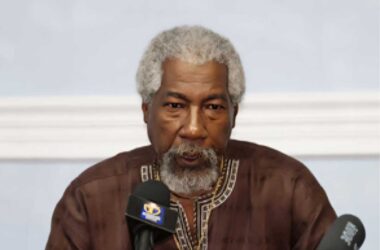I feel it necessary to voice my frustration regarding a preschool operating behind my home. This preschool has been in this location for several years, but recent changes have signifi-cantly increased noise levels, creating a persistent disturbance. The building itself ampli-fies all sounds, from plastic toys being moved to the teacher admonishing children, and most distressingly, the incessant crying and screaming of children with behavioural chal-lenges.
The noise begins early in the morning with particularly excruciating squeals from a non-verbal child or children, with sporadic outbursts continuing throughout the day. While this is not the fault of the child, it becomes especially troubling when the screams last for fif-teen minutes or more without any noticeable intervention from the teacher. Additionally, children are allowed to scream nursery rhymes without consideration for nearby residents.
This issue is especially difficult for individuals who work remotely, elderly residents who require a peaceful environment, and those with health conditions exacerbated by constant noise.
Lack of Structured Learning
Living in such proximity, I have observed the preschool’s daily activities, which appear to lack structured educational programmes. Rather than engaging in guided learning experi-ences that contribute to cognitive and social development, the children seem to spend most of the day in unstructured play. The teacher, meanwhile, appears preoccupied with managing children who have special needs, limiting time for effective teaching.
Attempts to Resolve the Issue
I have voiced my concerns to the preschool administration multiple times, but my com-plaints have had no impact. Frustrated by the lack of response, I escalated the matter to the Department of Early Childhood Education. While this led to a reduction in the move-ment of plastic toys against the walls, I was informed that there were multiple violations but that, without an official Early Childhood Education Act, no citations could be issued. Shockingly, I learned that the draft of the Early Childhood Education Act has been sitting in the Office of the Attorney General for decades without progress.
Following an escalation in noise levels, I submitted a written complaint to the Department of Early Childhood Education. This prompted an investigation by the Chief Education Officer, assisted by an inspector from the Ministry of Health. However, rather than ad-dressing the concerns, the response I received deflected the issue, portraying my frustra-tion as mere intolerance for noise. Additionally, I was informed that, due to the absence of legislation on noise pollution, no action could be taken.
The Urgent Need for an Early Childhood Education Act
The absence of a formal Early Childhood Education Act is a glaring issue. Such an act would establish clear standards for preschool locations, structural requirements, curricu-lum guidelines, and assessment criteria. Without this legal framework, there is no means to ensure preschools meet fundamental educational and operational standards. Moreover, there is no accountability mechanism to penalise institutions that fail to comply.
The government’s Early Childhood Education Unit website outlines a mission and vision that seemingly prioritises preschoolers’ development. However, these aspirations will re-main unfulfilled without proper legislation. Parents continue to send their children to pre-schools without fully understanding the quality of education their children receive. They participate in elaborate graduation ceremonies without any clear indication of what their children have actually achieved.
This raises critical questions:
• Do preschools understand the educational service they should be providing?
• Is there a minimum standard that should be met?
• How does the Department of Early Childhood Education operate effectively without an enforceable act?
• What are employees of this department being paid to do if they lack the authority to regulate preschools?
A Call for Action
Preschools should be environments where children learn and grow in appropriate settings that do not negatively impact the surrounding community. However, without legislation mandating proper curricula, staff qualifications, and noise control measures, both chil-dren’s development and residents’ quality of life are at risk.
Legislation on noise pollution exists to curb the behaviour of those who fail to consider the effects of their actions on others. The Ministry of Education must recognize the severe im-pact of noise pollution and ensure that establishments under its administration do not compromise the well-being of others.
A Concerned Citizen
It is time for policymakers to take decisive action and prioritize the enactment of the Early Childhood Education Act. The current inaction is unacceptable, and the well-being of both young children and community residents must no longer be ignored.









